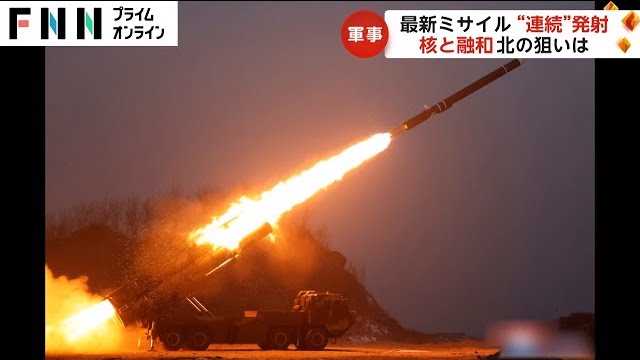TOKYO, Feb 19 (News On Japan) - Since the end of January, North Korea has successively launched three types of ground-attack cruise missiles, including a new type of anti-ship cruise missile.
The "Hwasal-2" strategic cruise missile launched on January 30th was reported by North Korean media not as a test but as a "training" exercise, suggesting that deployment to units has already begun.
South Korean media reported that the "Hwasal-2" flew at an altitude of less than 30 meters for a distance of 1,500 to 2,000 kilometers, making it difficult to detect by radar. Fuji TV's Senior Commentator Noboru Nose explained, "The earth is round, so at an altitude of less than 30 meters, most of the flight is hidden by the horizon, making it difficult to detect by ground or sea radar. If it can fly 1,500 to 2,000 kilometers, it could reach almost all of Japan."
North Korea has previously hinted at plans to mount a tactical nuclear warhead, "Volcano 31," on the "Hwasal-2." On January 28th, they tested the submarine-launched strategic cruise missile "Pulhwasal-3-31," which flew for over two hours. Nose added, "The name of this cruise missile, launched from underwater, is 'Pulhwasal-3-31,' with 'Pul' meaning fire in Korean, suggesting the Volcano 31 nuclear warhead."
Japan is countering the threat from North Korea, both from the sea and the ground. The U.S. Navy has established a method to detect low-flying cruise missiles over the ocean with early warning aircraft and relay that data to Aegis ships for interception. The Japan Maritime Self-Defense Force has equipped two "Maya"-class destroyers with terminals to share data with U.S. Navy Aegis ships and aims to intercept cruise missiles by networking with the ground-based interception system "PAC-3."
In response to Japan's moves, North Korea, the day after Japan revealed plans to begin operational training of the non-nuclear cruise missile "Tomahawk" as part of its counterattack capability in March, released a statement from Kim Yo-jong suggesting the possibility of Prime Minister Kishida's visit to Pyongyang.
The tension and deterrence between Japan and North Korea continue as both sides engage in a standoff.
Source: FNN
















